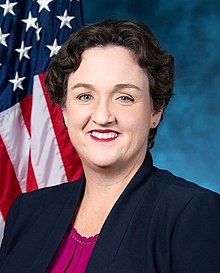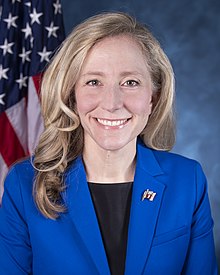The House Passed an Appropriations Bill. With a Message for the FCC.
Friday, June 28, 2019
Weekly Digest
The House Passed an Appropriations Bill. With a Message for the FCC.
You’re reading the Benton Foundation’s Weekly Digest, a recap of the biggest (or most overlooked) telecommunications stories of the week. The digest is delivered via e-mail each Friday.
Round-Up for the Week of June 24-28, 2019

On June 26, the U.S. House of Representatives passed the Financial Services and General Government Appropriations Act (H.R. 3351) -- an appropriations bill that provides fiscal year 2020 funding for a variety of departments and independent agencies, including the Federal Communications Commission. The massive bill passed with many amendments, some of which directly affect the FCC.
The bill was passed 224-196 on a mostly party-line vote. In total, the bill includes $24.55 billion in discretionary funding, an increase of $1.4 billion over the 2019 enacted level and $355.5 million over President Donald Trump’s 2020 budget request.
While the bill and its amendments could be tweaked or defeated in the Senate, or face a veto from President Donald Trump, the bill still sends a message to the FCC and Chairman Ajit Pai: we're not happy with the direction of the Pai FCC.
Telecom Policy Amendments

Blocking the FCC's USF Cap
Rep. Mark Pocan (D-WI), joined by Reps. Jim Clyburn (D-SC), Cheri Bustos (D-IL), and G.K. Butterfield (D-NC), sponsored an amendment that prohibits the FCC from finalizing a proposed rule that would impose a cap on the Universal Service Fund. The FCC launched the Notice of Proposed Rulemaking on May 31, but action on the item could be halted if the appropriations bill becomes law. For more on the FCC’s recent USF move, see: FCC Proposes Capping Fund Used to Close the Digital Divide.
Defunding FCC's Recent Ruling on Broadband Competition in Multi-Tenant Environments

Rep. Katie Porter (D-CA) sponsored an amendment that prohibits the FCC from finalizing a recent draft declaratory ruling on “improving competitive broadband access to multi-tenant environments (MTEs).” In June, the FCC put forth a public draft of an item that would seek to expand broadband deployment in MTEs by preempting local regulations that require mandatory sharing by internet service providers (ISPs) to in-home broadband wiring. The item specifically preempts San Francisco’s prohibition against broadband providers paying landlords for exclusive access to multiple-dwelling units. Chairman Pai claims that San Francisco’s rule "deters broadband deployment" and infringes on the FCC's regulation of cable wiring. Some in the public interest community disagree. New America’s Open Technology Institute opposes ISP exclusivity deals in MTEs because “they create broadband monopolies and lock renters into expensive internet service.”
"The FCC's mission is to promote competition,” said amendment sponsor Rep. Porter. “We should be holding them accountable to fulfilling this mission, which is why I'm seeking to defund their declaratory draft ruling preempting San Francisco's local ordinance, effectively preventing competition."
House Speaker Nancy Pelosi (D-CA), whose district is entirely within the city of San Francisco, also expressed her support for the amendment. A spokesperson for Speaker Pelosi said:
San Francisco and the State of California have led the way on consumer protections following the Trump administration's assault on net neutrality. The Speaker applauds Rep. Katie Porter's leadership in ensuring broadband choices remain in the hands of San Francisco residents and not in the hands of an anti-consumer puppet of special-interest corporations. It is our hope that the city's policy can serve as a model for localities across the country and that the FCC will recommit to its purpose of a consumer-first agency in order to remove barriers and improve access to broadband.
The FCC is expected to vote on the item at its July 10 open meeting. For more on the item, see this analysis from the Electronic Frontier Foundation.
Requiring the FCC to Provide an Update on Its Investigation Into the Sale of Geolocation

Rep. Lori Trahan (D-CA) sponsored an amendment that would compel the FCC to provide Congress with an update into the results of its investigation into the sale by wireless carriers of geolocation data to bounty hunters and other third-party aggregators. All wireless carriers have said the practice has ended and Chairman Pai, when asked about it at an oversight hearing, said he does not discuss ongoing investigations (a standard government agency practice), but also that the FCC was not dragging its feet.
Regarding her amendment, Rep. Trahan said:
It’s been over a year since Congress directed the FCC to investigate the sale of geolocation data by wireless carriers to third parties. Location data has been sold through a supply chain with little oversight, often leading to this information ending up in the hands of bad actors. For just a few dollars, stalkers and predatory abusers can buy geolocation information to prey on unsuspecting victims -- a reality that should set off alarm bells nationwide. Every day that the FCC delays reporting their findings from this investigation puts consumers’ personal security at greater risk. The FCC must act swiftly to remedy their lack of enforcement and transparency regarding this investigation.
Increasing Funding for Rural Broadband Infrastructure

Rep. Abigail Spanberger (D-VA) sponsored an amendment that would increase funding for the Rural E-Connectivity (ReConnect) program by $55 million over current funding levels. Reconnect makes loans and grants for broadband deployment in rural communities.
On Monday, the U.S. Department of Agriculture (USDA) announced that it had received applications requesting a total of more than $635 million in loan-grant combination funding through the program. This high demand means there is now a 3-to-1 ratio in federal funding dollars requested compared to funding dollars actually available for the ReConnect Program. Rep. Spanberger’s amendment provides a 10 percent funding increase for the program. “Through increased federal support, rural residents in Central Virginia and across the country can begin to close the broadband gap, attract new employees and businesses, and give students a greater opportunity to succeed,” said Rep. Spanberger.
Conclusion
A large appropriations bill has now passed the House, and it includes amendments that would: block USF changes, undo an FCC apartment-building broadband wiring item, compel the FCC to provide Congress with an update into its investigation of the sale of geolocation data by wireless carriers to third-party aggregators, and increase funding for rural broadband infrastructure.
What do these amendments say about how House Democrats view the FCC? New America’s senior counsel Joshua Stager said, “We applaud Congress for stepping up to protect the American people in areas where the current FCC leadership has failed...Collectively, these...amendments send a clear message: Congress is not happy with the direction the FCC has taken under Chairman Pai.”
As the appropriations bill continues its long journey through the sausage factory, you can be sure to stay on top of all telecom policy twists and turns by subscribing to our daily emailed Headlines newsletter.
Quick Bits
- Maine governor signs net neutrality bill (Associated Press)
- FCC Investigating Sinclair Over Tribune Deal (Broadcasting&Cable)
- HI, MA, MN, and NV join lawsuit from attorneys general seeking to block T-Mobile-Sprint merger (The Hill)
- Sens Warner and Hawley Introduce Designing Accounting Safeguards to Help Broaden Oversight And Regulations on Data (DASHBOARD) Act (US Senate)
- President Trump signals US government ‘should be suing Google and Facebook’ (Washington Post)
- Senators spar with Google exec over use of 'persuasive technology' (The Hill)
- Tech giants pressed in House hearing on policing extremist content (The Hill)
- President Trump Names Stephanie Grisham, Aide to First Lady, as White House Press Secretary (New York Times)
- USDA Names Chad Rupe as Rural Utilities Service Administrator (USDA)
- Next Century Cities Announces Francella Ochillo As New Executive Director (Next Century Cities)
Weekend Reads (resist tl;dr)
- Schools and Phone Companies Face Off Over Wireless Spectrum (Wired)
- State of Broadband (Research from Roberto Gallardo and Benjamin St Germain)
- Hearing on Improving Broadband Mapping to Tackle Digital Divide (House Committee on Small Business)
- USTelecom: Fixing Carrier Data Only Solves Part of the Broadband Mapping Problem; We Know How to Solve the Other Part (telecompetitor)
- US Tech Companies Sidestep a Trump Ban, to Keep Selling to Huawei (New York Times)
- Vermont's new data broker law shows challenge of regulating companies compiling and selling your personal information (Washington Post)
- Right to Connect: A Media-Policy Roadmap for Presidential Candidates (Free Press)
ICYMI from Benton
- A Preview of the FCC's July Open Meeting: Taking the "E" Out of EBS and TV (Robbie McBeath)
- Nothing is Normal About the T-Mobile-Sprint Merger Review (Gigi Sohn)
Upcoming Events
July 2 -- Lifeline Program Consumer Support Training, USAC
July 10 -- July 2019 Open Commission Meeting
July 17 -- Tribal Workshop at Saginaw Chippewa Indian Tribe, FCC
Benton, a non-profit, operating foundation, believes that communication policy - rooted in the values of access, equity, and diversity - has the power to deliver new opportunities and strengthen communities to bridge our divides. Our goal is to bring open, affordable, high-capacity broadband to all people in the U.S. to ensure a thriving democracy.
© Benton Foundation 2019. Redistribution of this email publication - both internally and externally - is encouraged if it includes this copyright statement.
For subscribe/unsubscribe info, please email headlinesATbentonDOTorg






